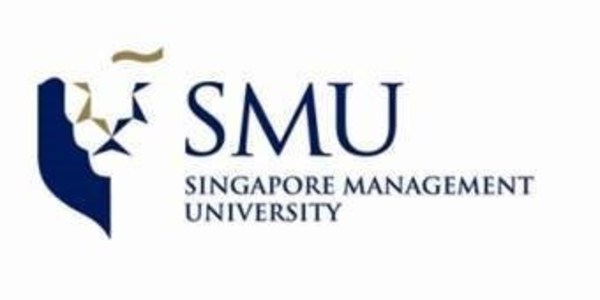 |
SINGAPORE, June 14, 2022 /PRNewswire/ -- The Singapore Management University's (SMU) Lee Kong Chian School of Business' (LKCSB) placed 1st in Asia and 3rd globally in the latest Financial Times' (FT) ranking of programmes for post-experience programmes, with its Master of Science in Wealth Management (MWM) programme. Another ranking of the world's best pre-experience degrees by FT placed SMU LKCSB's Master of Science in Applied Finance (MAF) programme firmly within Top 50 at 40th place, and 5th in Asia. Significantly, both programmes excelled in the indicators of 'Employed at 3 months' and 'Salary percentage increase', testament to the University's commitment towards enhancing the employability of its graduates.
Professor Bert De Reyck, Dean of SMU's Lee Kong Chian School of Business said, "I am proud of my talented colleagues, whose dedication helped us to achieve these results in the 2022 FT rankings. We will continue our efforts to engage closely with industry, deliver a curated and enriching learning experience, as well as to position our graduates for career success with the mental dexterity to address complex issues and global challenges in a post-pandemic world."
This year, both the MWM and MAF programmes scored well in FT's evaluated criteria of "Employed at 3 months", reflecting the University's efforts to prepare graduates to excel in their careers. The MWM achieved 91 per cent and the MAF achieved 77 per cent for the latest graduating cohort, an increase of 40 per cent and 64 per cent respectively, over the last year. In addition, MWM graduates were ranked top in terms of 'Career Progress' by FT.
Both programmes also excelled in the area of 'Salary percentage increase', which measures the average difference in alumnus salary between completion of degree and today. In FT's pre-experience ranking, graduates of the MAF programme recorded a 23 per cent improvement. In FT's post-experience ranking, graduates of the MWM programme saw a 17 per cent improvement
These ratings bear testimony to SMU's commitment to enhancing the employability of its graduates. Graduates were assigned coaches who provided bespoke career coaching over the course of study. Such individualised attention helped graduates to better understand their strengths, and align with the roles that they were targeting. Both the MWM and MAF programmes provided graduates with ample opportunities for internships in the financial sector as well as networking with industry professionals and alumni from past cohorts.
SMU's performance in the freshly released FT Global Rankings reflects the efforts of the University in equipping participants with deep knowledge and capabilities, to effectively address today's and tomorrow's challenges. With finance companies paying increasing attention to sustainability and ESG, SMU has tweaked the curriculum of its MWM programme to incorporate the latest developments in ESG and Impact Investing. The updated curriculum, delivered in conjunction with lectures and workshops with leading private banks and asset managers themed on sustainability investing, deliver added value to graduates, many of whom are professionals in finance.
Likewise, the MAF programme holds a firm focus on ESG and recently introduced a new module on sustainable finance and alternative investments. Graduates benefit from SMU's collaboration with industry partners, which offer scholarships and internships for participants in the programme's specialised Real Estate track, which was introduced in 2021. The elements of ESG and real estate lay a strong knowledge foundation and offer a headstart for MAF programme participants, many of whom are budding financial professionals or young career switchers seeking entry into finance.
About the SMU MWM programme
The SMU MWM started in 2004 as Asia's first and only full-time master's programme in wealth management, and the first specialised one in the world. It comprises a rigorous curriculum that is designed in consultation with industry professionals and academics collectively. It anchors on the strengths of institutions across Asia, Europe and USA. It is a recognised postgraduate programme associated with the CFA Institute and CAIA. It also embeds curriculum accredited under the local private banking certification standards.
Participants interact with wealth management professionals across three continents, through vast learning opportunities including exposure and immersion in global investing. Regularly reviewed to reflect industry developments, the MWM programme has a careful balance between theory and practice. Graduates obtain deep mastery of wealth management and are fully trained and job-ready. The modular structure allows professionals to pursue the master's degree while working, and those without wealth management experience can embark on an internship to enhance their employability. Graduates receive the MWM degree from SMU and certificates from eminent universities in Switzerland and USA in just 12 months. The programme has close to 700 alumni to date.
About the SMU MAF programme
Launched in 2002 as SMU's first postgraduate programme, the SMU MAF has an industry-relevant curriculum that prepares students to pursue the Chartered Financial Analyst (CFA) designation. To cater to the changing needs of busy professionals, SMU offers flexibility in allowing for its full-time programme to be completed in 12 to 15 months, while the part-time programme can be completed in 20 months.
The SMU MAF provides a strong foundation in the principles, practices and operations of international and domestic financial markets, focusing on applying current and relevant knowledge in real-world situations. The programme provides students with an exceptionally enriching learning experience in two continents. To date, SMU has graduated more than 1,700 students in total under the various MAF tracks.
About the FT Post-Experience and Pre-Experience Rankings 2022
The FT defines pre-experience programmes as those aimed at students with little or no professional experience, while post-experience programmes require participants to have worked in finance. Most full-time programmes are aimed at pre-experience students. The rankings are based on information collected in two separate surveys.
For the full results, please refer to https://rankings.ft.com/home/masters-in-finance